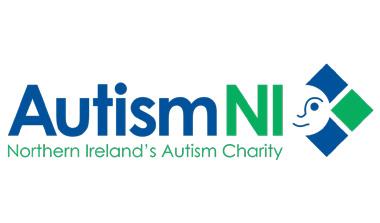Characteristics of Autism
Autism is a lifelong disability which affects the social and communication centre of the brain. Autism affects the way an individual relates to people, situations and the immediate environment. Many individuals with Autism have difficulty processing everyday sensory information like sight, smells, touch, tastes and sounds.
The two main areas of difficulty which all people with autism share are:
- Social Communication and reciprocal Social Interactions.
- Restricted, Repetitive and Inflexible Patterns of Behaviour (including sensory processing differences).
As Autism is a spectrum condition, it will affect people in different ways depending on the individual. It is important to understand how each individual is impacted in these areas, to enable you to support them in an individualised way that works best for them.
Social Communication and reciprocal Social Interactions
Difficulties in social communication and interactions can vary widely depending on the individual. Some individuals may be non-verbal (do not use language to communicate their needs) and some individuals are verbal but may find certain aspects of social communication challenging. Some of the common communication and interaction difficulties include:
- Sustaining social communication (e.g. small talk, maintaining a spontaneous conversation).
- Understanding nonverbal cues (e.g. body language, tone of voice, facial expressions).
- Understanding the social context of a situation.
- Social Skills (e.g. personal space, eye contact).
- Understanding or imagining other people's thoughts and reactions within a social context.
There are lots of ways to support a person with their social and communication needs, including adapting our communication methods to better suit Autistic individuals. Many people with Autism prefer visual styles of communication, for example, receiving written instructions or directions rather than having to memorise verbal information. Teaching social skills and social understanding can support a person with Autism to feel more confident within social situations.
Restricted, Repetitive and Inflexible Patterns of Behaviour (including sensory processing differences)
Many people with Autism may have inflexible patterns of behaviour, interests or activities. This means that they may prefer routines, plans and knowing what to expect. Change or unexpected events within a day can be highly stressful for an individual. Some of the common restricted, repetitive and inflexible patterns of behaviour include:
- High anxiety because of unexpected changes.
- The need to follow particular routines or rules.
- Repetitive behaviour (e.g. hand flapping) or interests (e.g. highly focused on particular topics or activities).
- Hypersensitivity (over sensitive) or hyposensitivity (under sensitive) to sensory information including noise, lights, smell, taste, touch and body awareness.
Many of these differences are due to how a person's brain is processing information about the world around them. There are lots of adaptations that can be beneficial to an individual with Autism, including adapting the sensory environment and giving relevant information in a clear and concise way.
For additional resources and information to help you support an individual with Autism, please contact the Autism NI Helpline on 02890 401 729.





























